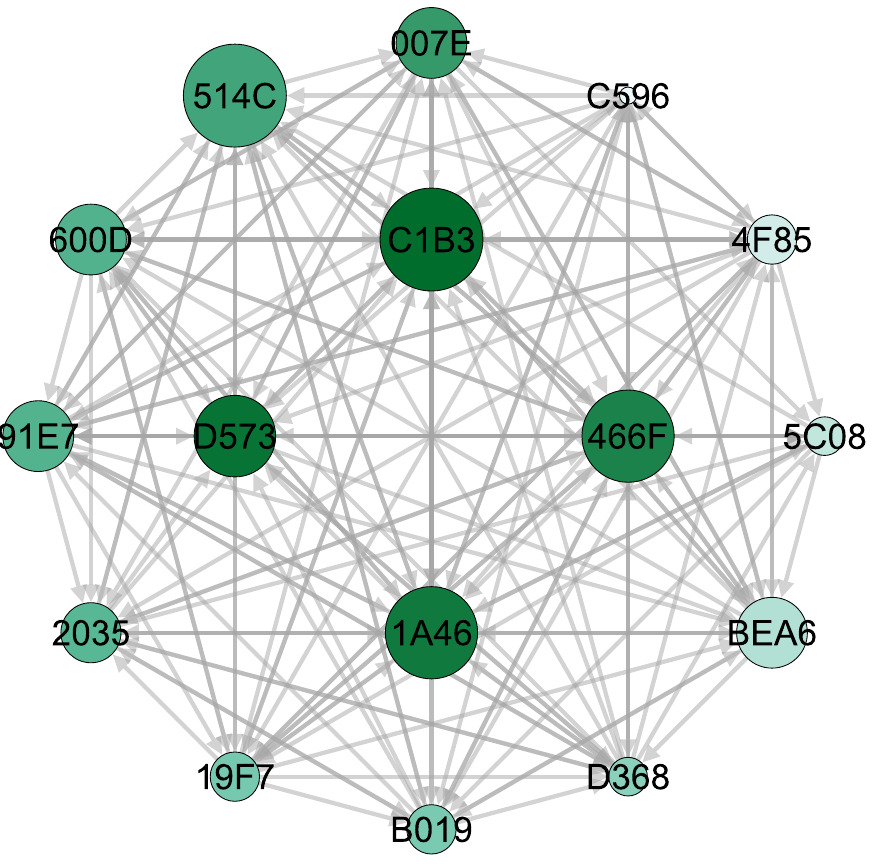Data-driven modeling of leading-following behavior in Bechstein's bats
Pavlin Mavrodiev, Daniela Fleischmann, Gerald Kerth and Frank Schweitzer
PLOS Computational Biology (2019)
Abstract
Leading-following behaviour in Bechstein's bats transfers information about suitable roost sites from experienced to inexperienced individuals, and thus ensures communal roosting. We analyze 9 empirical data sets about individualized leading-following (L/F) events, to infer rules that likely determine the formation of L/F pairs. To test these rules, we propose five models that differ regarding the empirical information taken into account to form L/F pairs: activity of a bat in exploring possible roosts, tendency to lead and to follow. The comparison with empirical data was done by constructing social networks from the observed L/F events, on which centralities were calculated to quantify the importance of individuals in these L/F networks. The centralities from the empirical network are then compared for statistical differences with the model-generated centralities obtained from $10^5$ model realizations. We find that two models perform well in comparison with the empirical data: One model assumes an individual tendency to lead, but chooses followers at random. The other model assumes an individual tendency to follow and chooses leaders according to their overall activity. We note that neither individual preferences for specific individuals, nor other influences such as kinship or reciprocity, are taken into account to reproduce the empirical findings.

